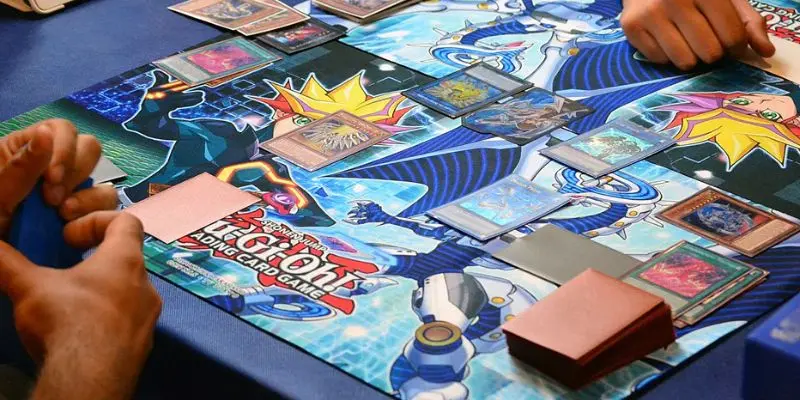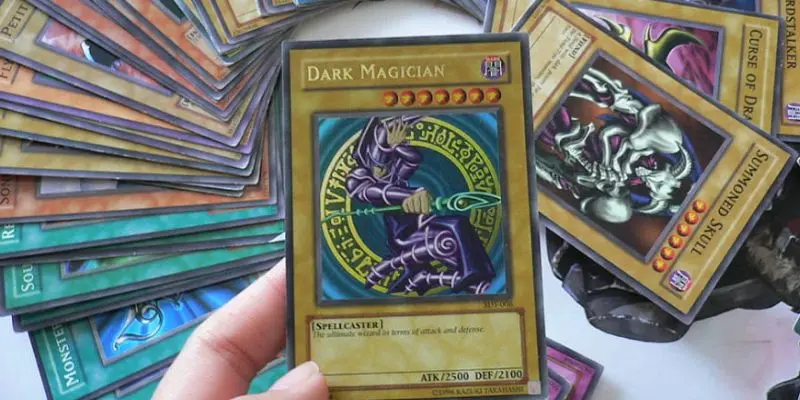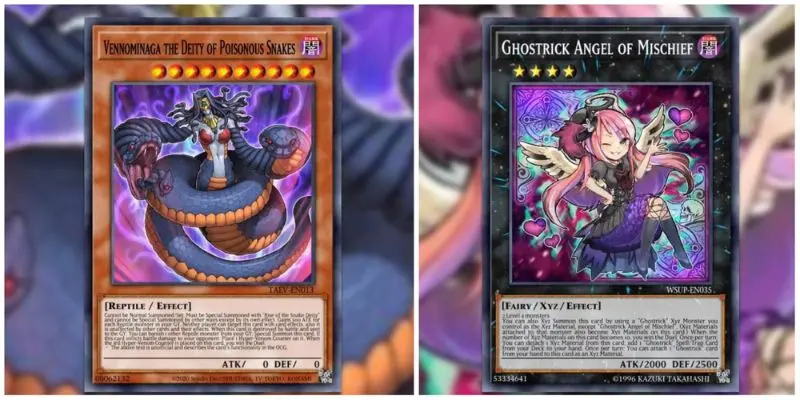Yu-Gi-Oh! is one of the most famous and beloved trading card games worldwide, originating from the manga of the same name by Kazuki Takahashi. Since its debut in 1996, Yu-Gi-Oh has evolved beyond an exciting comic series into various entertainment products like animated series, video games, and especially the Duel Monsters card game, this game 5JL has captivated millions of players worldwide, becoming a popular cultural phenomenon.
History and development of Yu-Gi-Oh!
Yu-Gi-Oh! started as a manga published in Weekly Shonen Jump. The story revolves around Yugi Mutou, a shy boy who accidentally solves an ancient artifact called the Millennium Puzzle. Upon completing it, Yugi awakens a powerful ancient spirit and becomes a master of games, especially Duel Monsters.
In 1999, Konami officially released the Yu-Gi-Oh! card game, based on the game from the manga. Since then, Yu-Gi-Oh! has become a beloved trading card game, constantly evolving with new card types and international tournaments, attracting both professional and casual players.

How to play Yu-Gi-Oh!
Game is a turn-based game with a clear sequence of actions:
Draw phase
At the start of each turn, the player draws a card, the only exception is the first turn of the starting player, where they do not draw a card.
Standby phase
During this phase, some card effects are activated, typically described in the text of the cards.
Main phase 1
Here, players can perform most non-battle actions, including summoning or setting a normal monster (either face-up attack position or face-down defense position), performing special summons if possible, activating or setting spell and trap cards, and changing the battle position of monsters, including flipping face-down defense position monsters to face-up attack position.
Battle phase
This is the main action phase, where monsters in attack position can launch attacks. Each monster can attack once, and during the battle, you compare your monster’s ATK value to the opponent’s ATK or DEF, depending on the situation. The result of the battle depends on this comparison.
End phase
At this point, certain card effects are triggered, as described on the card. If a player has more than six cards in hand, they must discard until they have only six.

Famous card types in Yu-Gi-Oh!
In Yu-Gi-Oh!, cards are divided into several different types, each with its own features and role in the game. Here are details about the popular card types:
Monster cards
These are the primary cards in Yu-Gi-Oh! used to summon monsters onto the field. They are further categorized:
- Normal Monster: Yellow cards with no special effects, just ATK/DEF stats.
- Effect Monster: Monsters with additional special effects that allow players to create complex strategies.
- Fusion Monster: Purple cards that require Polymerization or other special methods to fuse from required monsters.
- Ritual Monster: Blue cards that must be summoned using a Ritual Spell Card and sacrificed monsters.
- Synchro Monster: White cards requiring a Tuner Monster and other monsters to summon.
- Xyz Monster: Black cards requiring stacking monsters of the same level (Rank) to summon.
- Link Monster: Blue cards with no level or DEF, summoned by using a specific number of monsters, utilizing link arrows to set strategies.
Spell cards
These cards support players during duels by providing beneficial effects, there are 6 types of Spell Cards:
- Normal Spell: One-time effects, then sent to the Graveyard.
- Continuous Spell: Effects remain as long as this card stays on the field.
- Equip Spell: Attaches to a monster to grant it special effects.
- Field Spell: Changes the battlefield and has effects that impact both players.
- Quick-Play Spell: Can be activated during the opponent’s turn or in the Battle Phase.
- Ritual Spell: Used to summon Ritual Monsters.

Trap cards
Trap cards are typically activated under certain conditions or during the opponent’s turn to stop their moves, there are 3 types of Trap Cards:
- Normal Trap: One-time effects, then sent to the Graveyard.
- Continuous Trap: Stays on the field and provides continuous effects until destroyed.
- Counter Trap: Used to counter the opponent’s actions (e.g., negate spells or monsters).
Special monster cards
In addition to regular monsters, there are special monster cards with unique summoning mechanics, such as:
- Pendulum Monster: Both a monster and a spell card, it has special abilities to summon monsters from the hand or Graveyard.
Each card type has its own strategic role and can be combined to create complex gameplay, depending on the player’s strategy.
Conclusion
You now have the necessary guidelines to begin your journey as a duelist in the Yu-Gi-Oh! at Trading Card Game. Once you master the basics, explore the various Special Summon styles to upgrade your deck and find the best way to start your collection!
